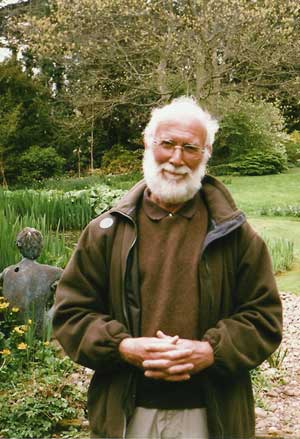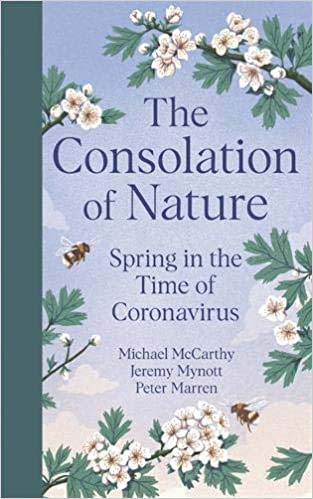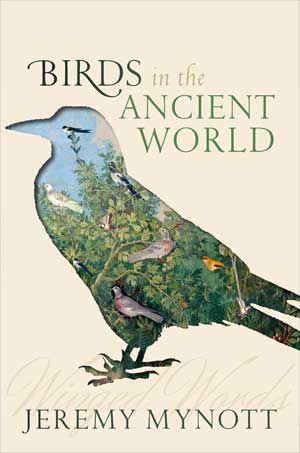Jeremy Mynott is a naturalist and writer, living in Suffolk.
Jeremy’s new book, The Story of Nature, is an illustrated account of humanity’s evolving relationship with the natural world from pre-history to the present day. He looks at the different ways in which humankind has understood and responded to it over the centuries, from the dramatic depictions of animals by the prehistoric cave-painters to the current environmental crises, and he speculates how our ideas about nature might change again in future scenarios defined by climate change, urbanisation and AI.
‘Totally captivating, wonderfully readable – a glorious tour de force, celebrating everything that nature means to us, exploring why it matters, and setting out what we might yet do to restore and protect it. Not just a beautiful elegy but an urgent call to action.’
Caroline Lucas
‘I recommend The Story of Nature to anyone who wishes to look beyond species and identification to the greater picture of nature through time and perception… It is a book to make you think. That could be one of the definitions of a classic. I think this book has the makings of one.’
Peter Marren, British Wildlife
‘Mynott’s ambitious undertaking pays off, shedding light on thousands of years of human history by striking a finely calibrated balance of big-picture analysis and specific examples. As sweeping as it is edifying, this impresses.’
Publisher’s Weekly
‘Mynott has produced a book unlike any other that we’re apt to see published this year, or next year, or the next: a work of natural history that, like torchlight in a newly discovered cave, illuminates wonders, perils, and pathways — both forward and back — that we didn’t even know were there.’
Benedict Cosgrove, Red Canary
‘Mynott shows that we are part of nature and our potency in relation to it imposes an obligation on us. Told with an extraordinary brightness, clarity and sense of authority, this book is a marvel.’
Adam Nicolson
‘Mynott is one of our most thoughtful and intelligent nature writers. In this wide-ranging and fascinating book, he tries to answer a deceptively simple question: “what is nature and why does it matter?”’
Stephen Moss
‘Absorbing, erudite and infused with the latest scholarship…Mynott puts his stamp on the rich and complex but oft-told story of the meanings of nature in the western world.’
Peter Coates
‘The vast erudition and the clarity of Mynott’s writing will make The Story of Nature not only an important resource for scholars but also an ideal textbook for many courses.’
Boria Sax
In 2020, Jeremy collaborated with two other naturalists to write The Consolation of Nature, their ‘lockdown diary’ of Spring in the Time of Coronavirus.
Jeremy’s Birds in the Ancient World (2018) is a cultural history of the relations between humankind and birds in the ancient civilisations of Greece and Rome. The book has been very widely reviewed, it was a TLS ‘Book of the Year’ in 2018 and was shortlisted for the 2019 Wolfson History Prize.
‘thought-provoking, highly readable and exhaustive’, Mark Cocker, Spectator;
‘this definitive and original account of birds in the ancient world will serve as an invaluable reference for all subsequent historians of ornithology, and indeed, zoology as a whole.’, Tim Birkhead, Archives of National History;
‘an astonishing combination of knowledge and sheer readability’, British Birds;
‘masterful cultural and scientific history’, Nature;
‘one of the most beautiful, most engaging and simply most delightful books I have read in a long time… a masterclass in writing … which incites one to ponder upon fundamental ecological and environmental issues and to re-examine our own relationship to the natural world.’, Greece & Rome.
Birdscapes: Birds in Our Imagination and Experience (2009), explores the variety of human responses to birds, described by reviewers as ‘the finest book ever written about why we watch birds’ (Guardian) and ‘a wonderful rumination on birds and birders through space and time for anyone interested in our relationship with nature’ (THES).

Jeremy has deep-rooted local interests in Suffolk. He has edited two volumes about village life and work in Little Thurlow (2000 and 2010). And he led a biodiversity survey of Shingle Street, a tiny hamlet on the Suffolk coast, summarised in his illustrated book, Knowing your Place: Wildlife in Shingle Street (2016), which was hailed by British Wildlife as ‘a model of its kind’. He publishes monthly ‘nature notes’ in both places.
Jeremy has also published an edition and translation of Thucydides (2013), the ancient Greek historian whose work is a foundational text in the history of Western political thought and remains one of the most penetrating studies in the nature of political power, widely invoked in contemporary discussions of political theory and international relations.
‘I recommend Mynott’s version most highly…. Altogether, this edition in a crowded field offers many unique annotations complementing its fresh and accurate translation.’ Donald Lateiner, Ancient History Bulletin.

Jeremy has broadcast on radio and television, is a regular reviewer for the TLS and wildlife magazines, and a founder member of ‘New Networks for Nature’ in 2009, an initiative that annually brings together a wide range of writers, poets, artists, musicians, scientists and naturalists to celebrate the diversity of creative responses to the natural world and inspire efforts to promote its importance in our national life.
On 5 December 2019, Jeremy and four co-authors launched A New Deal for Nature with Caroline Lucas of the Green Party. It sets out a radical vision of how to restore and enrich the natural world in Britain. See coverage in the Guardian.
Jeremy spent most of his earlier professional career in publishing at Cambridge University Press, working successively as editor, editorial director, managing director and chief executive. He has been a Fellow of Wolfson College, Cambridge since 1999 and an Emeritus Fellow since 2009.






